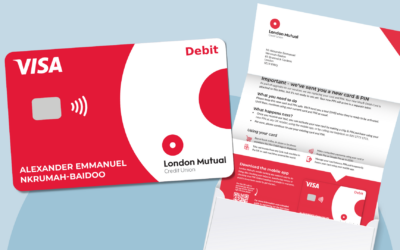If you have a credit card, now is the time to start increasing your repayments. New rules are coming into effect which mean your credit card may be suspended if you regularly pay only the minimum amount.
Four million people currently pay the minimum when they get their credit card bill each month. Often, this isn’t even enough to cover the interest. This means that even if you pay on time, your debt may be growing faster than you are paying it off.
It is estimated that people in this situation can end up paying £2.50 in interest and charges for every £1 that they repay, trapping them in a cycle of costly debt.
What is happening?
Since September 2018, the Financial Conduct Authority (FCA) has required card providers to contact customers who have been making minimum repayments for more than 18 months. They have then had another 18 months to encourage those customers to repay more.
If you have received one of these letters, the key thing is not to ignore it. Under the rules, your lender needs to offer you a way to repay your balance over a reasonable period (usually 3-4 years). If you can’t afford to increase your payments, the lender could reduce, waive or cancel any interest, fees or charges.
But if you decide not to respond or to take any action to repay your debts, your card company may decide to suspend your account. This could make it harder for you to get credit in future.
Paying off your credit card
If you’ve been in minimum payment trap for a while, now is the time to do something about it:
- If you can afford to, increase your credit card payments. The more you pay each month, the sooner you’ll pay it off, and the less interest you’ll pay overall.
- Have a plan to clear the balance. Based on your repayments, when will you have everything paid off? Having a clear end date in mind will give you a goal to work towards.
- Check our consolidation loan calculator to see if it could be cheaper to pay off the whole balance immediately using a loan from us. This won’t always be an option if you’re already facing problems with severe debt. But in some cases, we’ll be able to save you money on interest and help you to pay things off sooner.
- If you can’t afford to pay more than you do currently, you should get in touch with your card provider now. Under the new rules, the lender must offer you an alternative way to repay what you owe.
- Once you’ve paid off your credit card, and need to borrow in future, consider a credit union loan instead. Our loans come with a fixed end date when you’ll be debt-free, and often have lower rates of interest.
- If you do decide to continue with your credit card, set it up so that you pay off the full balance each month. This will minimise the interest you pay, and make it harder to borrow more than you can afford.



